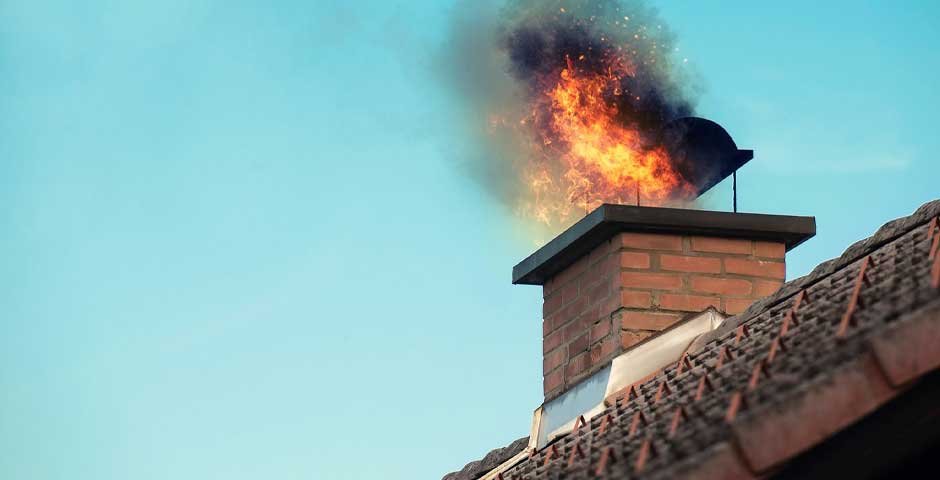It goes without saying that having a clean and well-functioning chimney is essential for the safety and efficiency of your home as observed by Limestone Country Properties Team in Cibolo. But navigating when, how often, and even how to clean your chimney can be challenging. If left unchecked, use of an unclean or malfunctioning chimney can present significant fire hazards in addition to excessive smoke and poor air flow. So saving yourself time, money, and stress in the long run starts with knowing when it’s time for a proper sweep. In post, Willard Power Vac serving Portland, Oregon will discuss some key indicators that point to a need for cleaning and help guide you towards ensuring that your chimney is working safely, no matter the season.
Foul Smell
If you notice a strong odor coming from your chimney, it is a sign that something is not right. A musty or damp smell could mean that there is water accumulation in your chimney. On the other hand, a strong odor of burnt wood or tar could indicate that creosote buildup is occurring in your chimney. The smell of creosote can be particularly dangerous as it can ignite and cause a chimney fire.
Smoke in the House
When you start to notice smoke in your living space while using your fireplace, it is a sign that your chimney is blocked. The blockage could be due to a buildup of creosote or other debris that is preventing the smoke from escaping. In addition to being a fire hazard, the smoke can also pose a health risk as it contains harmful gases like carbon monoxide.
Difficulty Starting a Fire
If you are having difficulty starting a fire or keeping it going, it could be a sign that your chimney needs cleaning. A blocked chimney can restrict the airflow, making it harder to ignite the firewood. It can also cause the fire to burn inefficiently, leading to more smoke and the potential for a chimney fire.
Soot Buildup
Soot is a black powdery substance that can accumulate in your chimney. It is a byproduct of burning wood and can indicate that there is a buildup of creosote in your chimney. Soot can also be an indicator of poor combustion and can be a health hazard if it enters your living space.
Visible Creosote Buildup
Creosote is a sticky, tar-like substance that can accumulate on the walls of your chimney. It is a byproduct of burning wood and can ignite and cause a chimney fire if it builds up too much. Creosote buildup is particularly dangerous as it can be difficult to detect until it is too late. If you notice a buildup of creosote on the walls of your chimney, it is important to have it cleaned immediately.
Animal Infestation
If you hear strange noises coming from your chimney, it could be a sign of an animal infestation. Birds, squirrels, and other small animals often build nests in chimneys, leading to a blockage that can prevent smoke from escaping. Animal nests can also be a fire hazard as they are often made of flammable materials.
Crumbling Masonry
If the masonry of your chimney is starting to crumble or deteriorate, it is a sign that your chimney needs attention. Crumbling masonry can allow smoke and gas to escape into your living space, posing a health risk. It can also be a sign of water damage, which can lead to mold growth and further deterioration of your chimney.
Why Chimney Cleaning Is Necessary
Chimney cleaning is a crucial task when it comes to maintaining the safety of your home. A chimney is responsible for expelling harmful gases such as carbon monoxide and creosote, a tar-like substance that builds up over time. This buildup can lead to chimney fires, causing extensive damage to your property and jeopardizing the lives of those inside.
Neglecting chimney cleaning can also result in reduced airflow, causing inefficient combustion, and subsequent air pollution. The worst part is that chimney fires may go undetected, making them one of the most dangerous types of fires.
Moreover, a well-maintained chimney not only reduces the risk of a fire accident but also extends the life of wood-burning appliances, improving their efficiency and reducing operating costs.
Regular chimney cleaning also enhances the overall air quality in your home since any debris or dust accumulated inside the chimney is removed, reducing the chances of it entering your living space.
Therefore, it’s critical to prioritize chimney cleaning at least once a year to ensure your home is safe from any potential hazards. Don’t wait for disaster to strike; take action now, and protect your home, family, and the environment.






